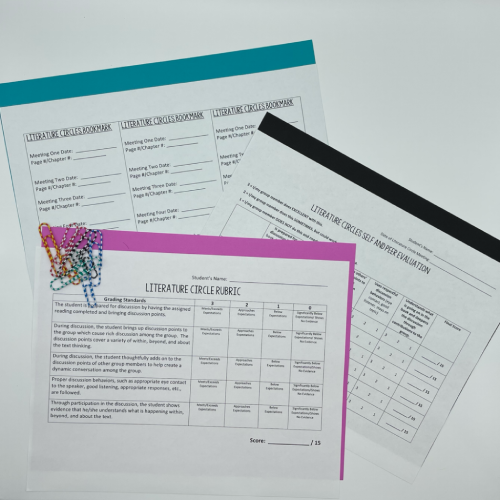If you’re feeling anything like me, the one word that comes to mind is uncertain. There are a lot of questions that we simply don’t have the answers to at this point about this whole situation, and that can feel unnerving. My intention in this post is to provide you with some ideas and rationale for learning opportunities over the next few weeks as we say goodbye to our students for the time being.
In my district, we have decided to not provide required curriculum through distance learning. It’s for a variety of reasons: Internet access/device access for all students, two school days to prepare, students who will be tasked with watching younger siblings, etc. In Wisconsin, it is also law that if we provide curriculum for a school closure lasting over 10 days that we have to provide an equitable curriculum for all students, including all students with IEP’s. So instead, we made the decision to offer non-required “educational opportunities.” With all this in mind, I’d like to offer some thoughts and resources that I believe are relevant to more than my situation and school district. I know a lot of teachers out there have been tasked with providing required curriculum and are thinking, “What should I send home and offer to students?” Below I’m going to share thoughts, resources, and ideas that might work for you as you navigate these uncharted waters.
1. This link will take you to a PDF document that can be downloaded through Google Drive. It encourages all students to spend at least an hour each day involved in literacy-based activities such as reading, writing, skill work on computer programs, speaking & listening, and reading aloud. You could send home a paper copy, post on Google Classroom, and also send home electronically to parents.
2. BE A BOOK PUSHER. If you still have time with students before school is called off, get books in the hands of students. I don’t care what you have to do to make it happen, but please do everything in your power to ensure that all kids leave your school with at least one book, if not multiple books. Talk to your librarian about sneaking in 10 minutes for book checkout in the library for your classes, encourage students to read literature circle book choices from previous units that they haven’t read yet, encourage checkout from your classroom library, utilize any other book resources your school has such as a book room or online book checkout. Do whatever you have to do to match students with books they would be likely to read in the weeks ahead. If they’re already gone, can you reach out with places in your community or electronically where they could still gain access to relevant and engaging books?
3. Don’t send home a ton of worksheets or packets. Now is not the time to send home a stack of worksheets for students. This is a time where we can intentionally foster a love/like/or “slightly above hate” relationship for students with reading and writing. Focusing on books and authentic writing opportunities over worksheets.
4. Use technology to foster discussion, connection, interaction, and thinking. Google Classroom is the perfect place to throw out a daily writing prompt for student journaling/creative writing or post a general reading discussion question that could be applicable to many books.
5. If you’re feeling really awesome, shoot a video of yourself reading a picture book, short story, or the remainder of a read aloud you’re in the middle of with your class and post it to Google Classroom for students to view (make sure you check book copyright). You could also share YouTube videos pertaining to literacy topics you would be covering in class.
6. A teacher at my school introduced me to IXL, and it’s a great thing to encourage students to do daily to build vocabulary and grammar knowledge. Students get 10 free questions a day. You could post recommended skills to work on via Google Classroom.
7. Use Google Classroom to put out links to Podcast episodes that students would be interested in. Podcasts are free, a little different/fun, and highly engaging. Maybe some of your students have never listened to one before. This link contains a list of Podcasts appropriate for students at different age levels.
I hope something in the post was helpful to you as we walk together as a nation and world into the unknown without fear. Thank you to all school staff for your hearts and your commitment to students.





